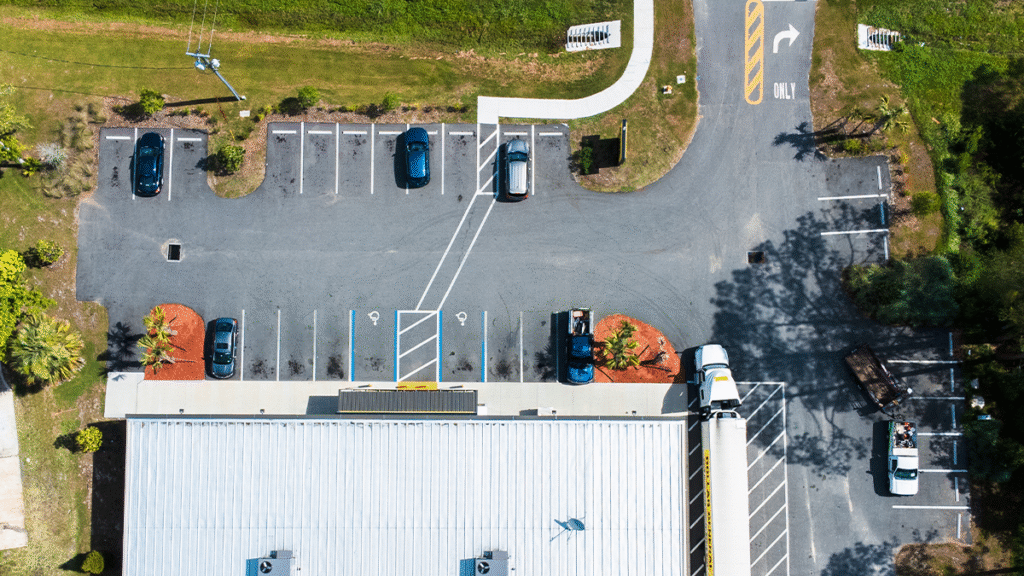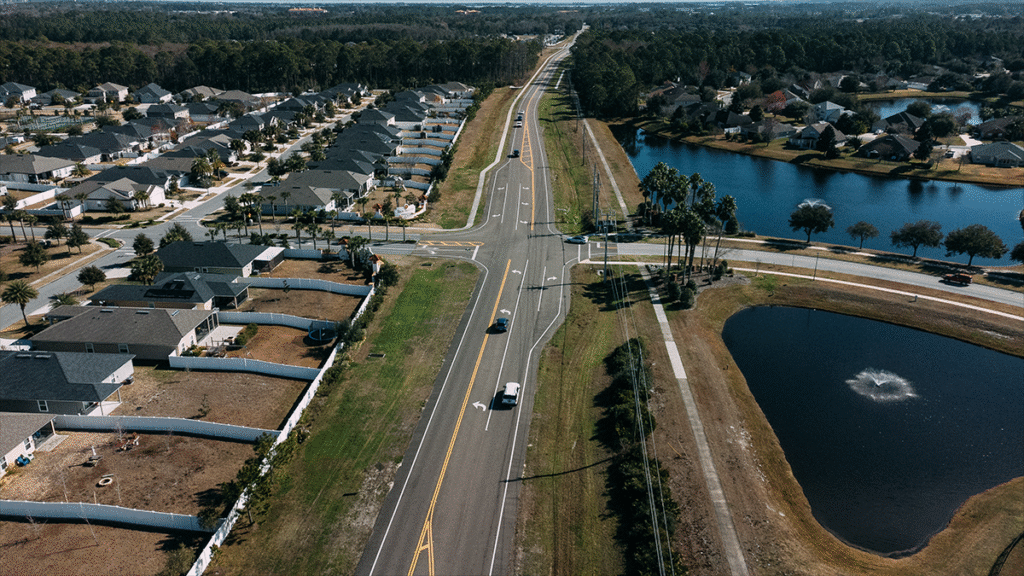Hurricane Season Preparedness: Comprehensive Strategies and Practical Tips
Hurricane Season Preparedness: Comprehensive Strategies And Practical Tips As we navigate through hurricane season, the importance of preparedness and resilience in our communities cannot be overstated. At Matthews | DCCM we leverage our expertise in civil engineering, transportation/roadway engineering, landscape architecture, architecture, land planning, surveying, and construction administration to help communities withstand and recover from the impacts of these powerful storms. Here’s how each of our services contributes to hurricane season preparedness and response, along with practical tips to keep your home and community safe. Civil Engineering Our civil engineering team designs robust infrastructure that can endure severe weather conditions brought by hurricanes. We focus on creating stormwater management systems that efficiently channel water away from critical areas, minimizing flooding and damage. By incorporating sustainable and resilient design principles, we ensure that infrastructure remains functional during and after storms. Practical Tips: Proper Drainage: Clear gutters, downspouts, and drainage ditches to ensure water can flow away from your home efficiently. Grading: Ensure your property is graded to direct water away from the foundation, reducing the risk of flooding. Transportation/Roadway Engineering Transportation networks are vital during hurricane evacuations and post-storm recovery. Our transportation engineers plan and design roadways that maintain functionality under extreme weather conditions. We assess and enhance the resilience of bridges, highways, and local roads, ensuring safe and reliable routes for evacuation and emergency response. Practical Tips: Clear Routes: Ensure evacuation routes are clear of debris and well-marked. Familiarize yourself with the nearest evacuation routes and shelters. Report Issues: Be aware of the condition of local bridges and roads, especially those prone to flooding, and report any issues to local authorities. Landscape Architecture Landscape architects play a crucial role in designing green spaces and urban areas that can mitigate the effects of hurricanes. By integrating natural barriers such as berms, wetlands, and rain gardens, we reduce the impact of storm surges and manage floodwaters effectively. Our designs prioritize the use of native vegetation, which is more likely to withstand hurricane conditions and aid in quicker recovery. Practical Tips: Native Plants: Use native plants in your garden, as they are more likely to withstand hurricane conditions and recover quickly. Windbreaks: Plant trees and shrubs strategically to act as windbreaks, reducing wind speeds around your home. Permeable Surfaces: Use permeable materials for driveways and walkways to improve water infiltration and reduce runoff. Land Planning Effective land planning is essential for community resilience. We analyze flood zones, storm surge maps, and historical data to guide development away from high-risk areas. Our plans include creating safe zones and evacuation routes, ensuring that new developments enhance community safety and preparedness. Practical Tips: Floodplain Awareness: Know if you live in a floodplain and consider purchasing flood insurance if you do. Check local flood maps for your risk level. Surveying Accurate surveying is critical in the aftermath of a hurricane. Our surveying team provides precise data for damage assessments and reconstruction efforts. Pre-storm surveys help in identifying vulnerable areas, while post-storm surveys support efficient recovery by documenting changes in the landscape and infrastructure. Practical Tips: Damage Assessment: After the storm, conduct a thorough assessment of your property. Document any damage with photos and contact your insurance company promptly. Construction Administration During the construction phase, our administration team ensures that projects adhere to the highest standards of hurricane resilience. We oversee the use of appropriate materials and construction practices, ensuring that every aspect of the project meets stringent safety and durability requirements. Practical Tips: Safe Reconstruction: When rebuilding, ensure that construction adheres to current building codes and standards for hurricane resilience. Use licensed contractors and seek guidance from professionals. At-Home Emergency Preparedness Emergency Kits: Prepare an emergency kit with essentials like water, non-perishable food, medications, flashlights, and batteries. Communication Plans: Develop a family communication plan, including a meeting place and emergency contacts. Stay Informed: Monitor weather reports and heed warnings from local authorities. Sign up for community alerts if available. At Matthews | DCCM, we create comprehensive solutions that not only protect lives and property but also enhance the overall resilience of our built environment. By implementing these practical tips, together we can ensure greater safety and resilience during hurricane season. Ensure the safety of your property with our comprehensive inspection services. Whether you have questions about our services or simply wish to connect with our team, we’re here to help. Contact us today! additional articles December 20, 2024 Recognizing Excellence: Employee Milestones December 16, 2024 Matthews | DCCM Team Celebrates the Season November 15, 2024 DCCM Team Secures Continuing Service Contract with the City of Fernandina Beach November 15, 2024 Giving Back: Fall Recap November 12, 2024 Vilano Beachfront Park Project Earns FPZA Award for Inclusive Design Facebook Linkedin Envelope








